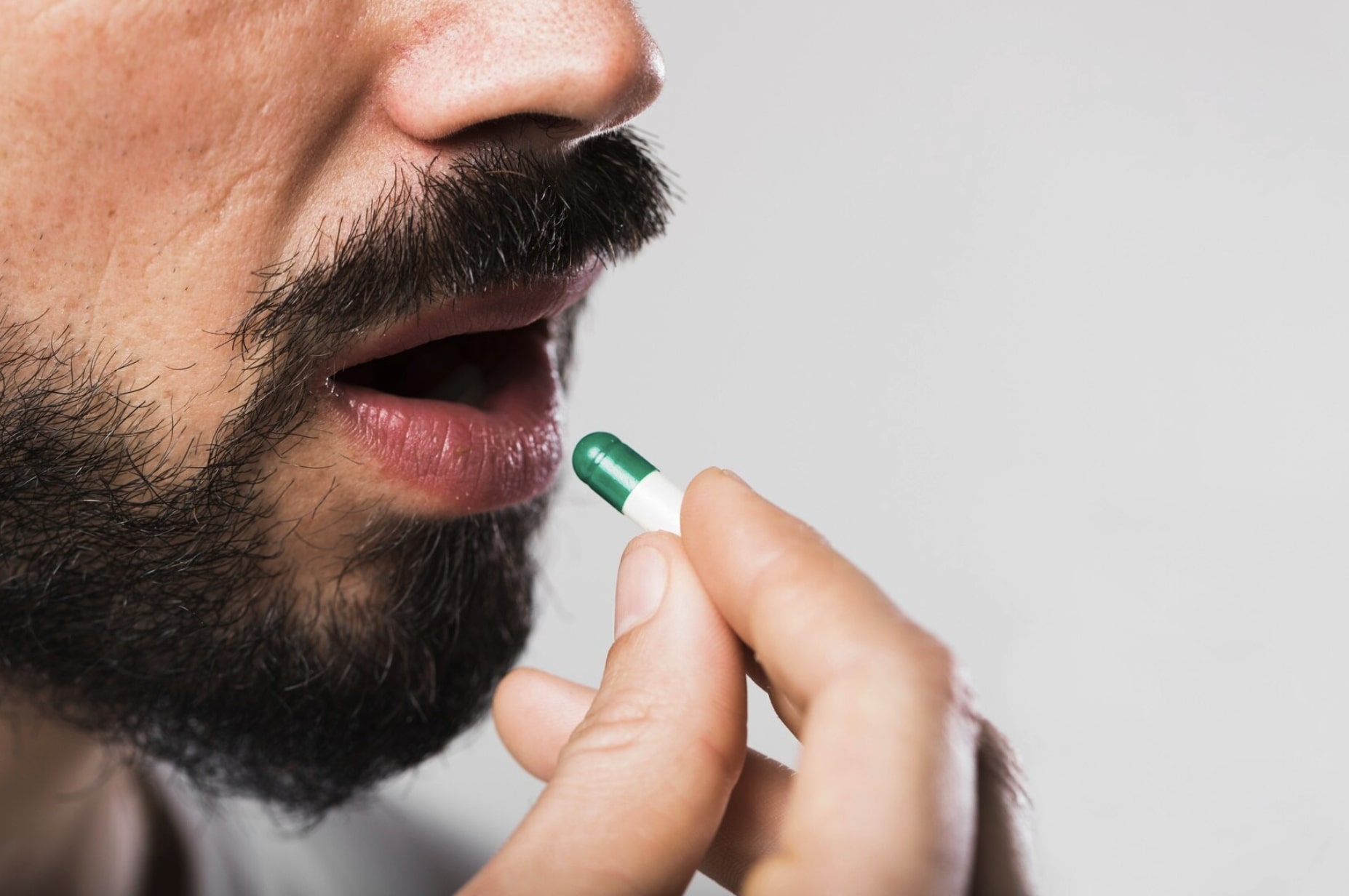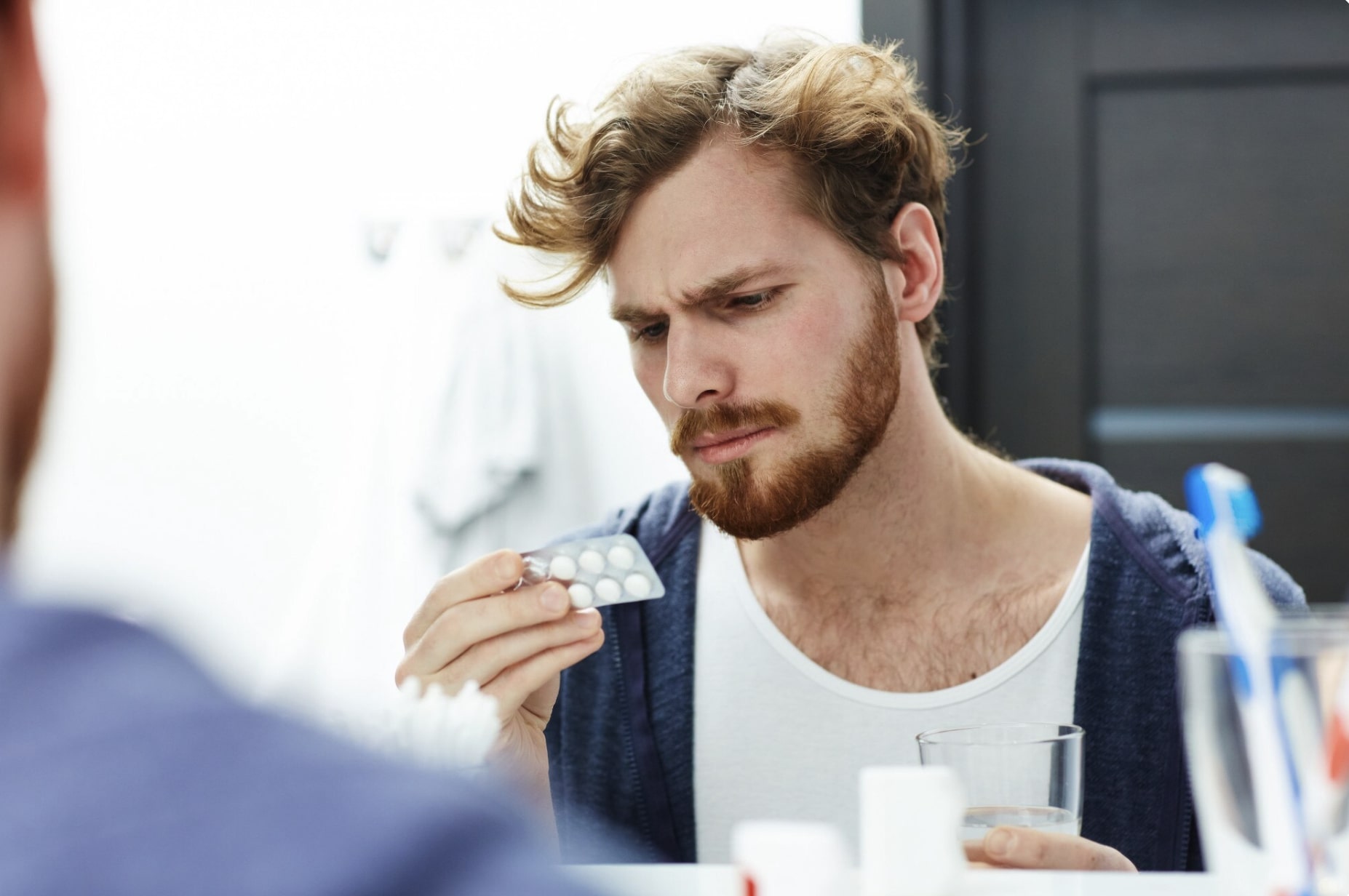As men age, it's common to experience a decline in testosterone levels. This can lead to a range of symptoms, such as fatigue, low libido, and decreased muscle mass. While there are medical treatments available, such as testosterone replacement therapy, making dietary changes can also help boost testosterone production naturally.
Eating a balanced diet rich in nutrient-dense whole foods and limiting processed products is key to supporting healthy testosterone levels. Incorporating specific testosterone-boosting foods into your meals can further optimize hormone production and help you feel your best.
The Impact of Diet on Testosterone Levels
Eating a balanced diet with adequate nutrients is crucial for maintaining healthy testosterone levels. Diets high in ultra-processed foods and low in nutrient-dense options may contribute to low testosterone production.
Research has shown that diets rich in healthy fats, such as those found in fatty fish, olive oil, and avocados, are associated with higher testosterone levels. Conversely, low-fat diets may lead to decreased testosterone production.
Incorporating specific testosterone-boosting foods into your diet can help support optimal hormone balance. These foods provide essential vitamins, minerals, and antioxidants that work together to promote healthy testosterone levels.
Fatty Fish: Omega-3s and Vitamin D Powerhouses
Fatty fish, such as salmon, tuna, and mackerel, are excellent sources of omega-3 fatty acids and vitamin D, both of which are essential for testosterone production.
Omega-3s are known as "good" fats due to their numerous health benefits, including supporting heart and joint health. Studies have linked low-fat diets to decreased testosterone levels, so incorporating healthy fats from fatty fish can help maintain optimal hormone balance.
Vitamin D, often called the "sunshine vitamin," plays a crucial role in testosterone synthesis. Fatty fish are among the best dietary sources of vitamin D, making them a valuable addition to a testosterone-boosting diet.
Leafy Greens: Magnesium-Rich Testosterone Boosters
Leafy green vegetables, such as spinach, kale, and collard greens, are packed with magnesium, a mineral that positively influences testosterone production.
Magnesium helps reduce oxidative stress, which can negatively impact testosterone levels. Oxidative stress occurs when there is an imbalance between free radicals and antioxidants in the body, leading to cell and tissue damage.
Studies have shown that low intake of leafy greens is associated with decreased testosterone levels. Incorporating a variety of magnesium-rich greens into your diet can help support optimal hormone production and overall health.
Cocoa Products: Antioxidant-Packed Delights
Cocoa powder and cacao nibs are not only delicious but also packed with magnesium and flavonoid antioxidants that can support testosterone production.
Flavonoids, particularly quercetin, have been shown to help increase testosterone levels by stimulating production in the testicles. Quercetin also acts as a powerful antioxidant, protecting cells from oxidative damage that can impair hormone balance.
When choosing cocoa products, opt for low-sugar or unsweetened options to maximize the health benefits without adding excessive sugar to your diet. Incorporating cocoa powder into smoothies, oatmeal, or yogurt, or snacking on cacao nibs, can be a tasty way to boost your testosterone levels naturally.
Avocados: Healthy Fats and Boron Galore
Avocados are a nutrient-dense superfood, rich in healthy monounsaturated fats and the mineral boron, both of which are essential for maintaining optimal testosterone levels.
Monounsaturated fats, like those found in avocados, have been shown to support healthy testosterone production. These healthy fats also help improve the absorption of fat-soluble vitamins, such as vitamin D, which is crucial for hormone synthesis.
Boron, a trace mineral, plays a significant role in testosterone metabolism. Studies have found that supplementing with boron can increase free testosterone levels and decrease estradiol, a form of estrogen, in men.
Adding avocados to salads, sandwiches, or as a standalone snack can help you reap the testosterone-boosting benefits of this incredible fruit.
Egg Yolks: Cholesterol and Selenium Superstars
Egg yolks are often avoided due to their cholesterol content, but this nutrient is essential for testosterone production. The body uses cholesterol as a building block for steroid hormones, including testosterone.
Egg yolks are also an excellent source of selenium, a mineral that plays a crucial role in maintaining healthy testosterone levels. Selenium acts as an antioxidant, protecting the testes from oxidative stress that can impair hormone production.
Incorporating whole eggs into your diet, particularly from free-range or pasture-raised hens, can provide a natural testosterone boost. Enjoy them boiled, poached, or scrambled as part of a balanced breakfast or as a protein-rich snack throughout the day.
Oysters: Zinc-Rich Delicacies
Oysters are a true superfood when it comes to boosting testosterone levels. These briny mollusks are packed with zinc, a mineral that plays a crucial role in testosterone production and reproductive health.
Zinc deficiency has been linked to hypogonadism, a condition characterized by low testosterone levels, impotence, and delayed sexual maturation. Incorporating zinc-rich foods, like oysters, into your diet can help prevent deficiency and support optimal hormone balance.
In addition to oysters, other shellfish, red meat, poultry, beans, and nuts are excellent sources of zinc. Be mindful when choosing supplements to avoid consuming excessive amounts of zinc or copper, as they compete for absorption.
Herbs and Spices: Flavorful Testosterone Supporters
Certain herbs and spices have been used for centuries to support male reproductive health and naturally boost testosterone levels. Incorporating these flavorful ingredients into your meals can help optimize hormone production while adding delicious depth to your dishes.
Ginger, a versatile root with a spicy kick, has been shown to increase testosterone production in test tube and animal studies. While human studies are still needed to confirm these findings, ginger may also help reduce blood pressure and improve blood flow, both of which are important for sexual function.
Ashwagandha, an adaptogenic herb used in Ayurvedic medicine, has been found to improve testosterone levels and sperm quality in men with fertility issues. This powerful herb helps the body cope with stress, which can negatively impact hormone balance.
Other herbs and spices that may support testosterone production include fenugreek, horny goat weed, and tongkat ali. Incorporating these ingredients into your cooking or taking them as supplements under the guidance of a healthcare professional can help you reap their testosterone-boosting benefits.
Pomegranates: Antioxidant-Rich Wonders
Pomegranates, with their vibrant red seeds and sweet-tart flavor, are not only delicious but also a powerful ally in boosting testosterone levels. These ancient fruits are rich in antioxidants that support overall health and hormone balance.
A study published in 2012 found that pomegranate juice consumption significantly increased salivary testosterone levels in both men and women. Participants also experienced improvements in mood and blood pressure, showcasing the far-reaching benefits of this antioxidant-rich fruit.
Pomegranates contain a unique compound called punicalagin, a potent antioxidant that helps protect the body from oxidative stress. By reducing inflammation and supporting cellular health, pomegranates create an optimal environment for testosterone production.
Incorporating pomegranates into your diet is easy and delicious. Enjoy the seeds on their own as a snack, sprinkle them over salads or yogurt, or blend them into smoothies for a nutrient-packed boost. You can also opt for pure pomegranate juice, but be mindful of added sugars in some commercial brands.
Frequently Asked Questions
What is the best diet for increasing testosterone levels?
A diet rich in whole foods, healthy fats, and essential nutrients is crucial for maintaining optimal testosterone levels. Focus on incorporating a variety of fruits, vegetables, lean proteins, and complex carbohydrates while limiting processed foods, refined sugars, and unhealthy fats. Consult with a healthcare professional or registered dietitian to develop a personalized meal plan that supports your unique needs and goals.
Can supplements help boost testosterone levels?
While some supplements may claim to increase testosterone levels, it's essential to approach them with caution. Many testosterone-boosting supplements lack scientific evidence to support their claims and may even contain ingredients that can negatively impact your health. Before starting any supplement regimen, consult with a healthcare professional to discuss potential risks and benefits, and to determine if they are appropriate for your individual needs.
How long does it take to see results from a testosterone-boosting diet?
The time it takes to see results from a testosterone-boosting diet varies from person to person. Factors such as age, overall health, and consistency in following the diet can all impact the timeline. Some individuals may notice improvements in energy levels, libido, and muscle mass within a few weeks, while others may require several months to see significant changes. Remain patient and committed to your healthy eating habits, and consult with a healthcare professional to monitor your progress.
Are there any foods to avoid when trying to boost testosterone levels?
When focusing on boosting testosterone levels, it's important to limit or avoid certain foods that may negatively impact hormone balance. These include processed foods, refined sugars, excessive alcohol, and foods high in unhealthy fats, such as trans fats and partially hydrogenated oils. Additionally, some studies suggest that soy products and certain endocrine-disrupting chemicals found in food packaging may interfere with testosterone production, so it's best to minimize exposure to these substances.
Can a testosterone-boosting diet replace medical treatment for low testosterone?
While a healthy diet can support optimal testosterone levels, it may not be sufficient to treat medically diagnosed low testosterone or hypogonadism. If you suspect you have low testosterone, it's crucial to consult with a healthcare professional for proper evaluation and treatment. They may recommend a combination of lifestyle changes, such as diet and exercise, along with medical interventions like testosterone treatment to help you achieve optimal hormone balance and overall well-being.
At Gameday Men's Health, our team of experienced healthcare professionals is dedicated to helping men achieve optimal health and wellness. We understand the importance of a comprehensive approach to testosterone management, combining personalized medical treatment with lifestyle modifications, including a balanced, testosterone-boosting diet.
If you're concerned about your testosterone levels or experiencing symptoms of low testosterone, don't hesitate to take action. Schedule an appointment with one of our men's health experts today, and let us help you get back in the game and feel your best.











